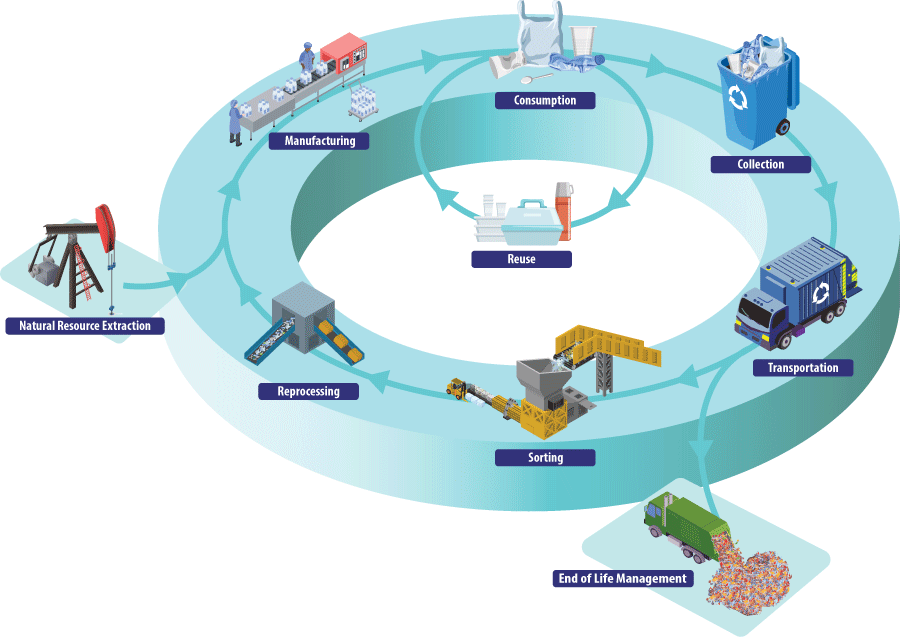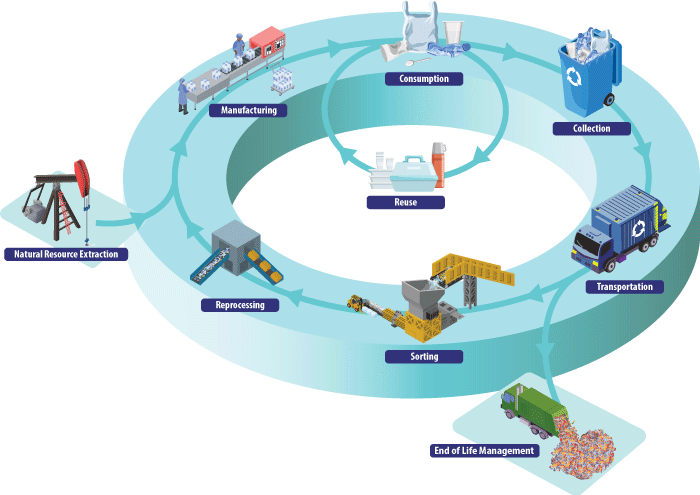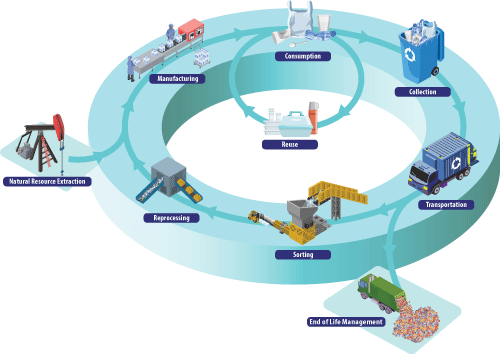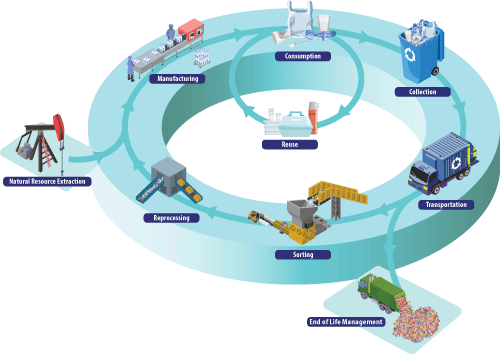Plastic
Click on each stage of the plastic lifecycle below to learn more:

Click on each stage of the plastic lifecycle below to learn more:

Click on each stage of the plastic lifecycle below to learn more:

King County has a Zero Waste of Resources by 2030 goal referenced in King County Code (KCC 10.14.020), the Strategic Climate Action Plan, and 2019 Comprehensive Solid Waste Management Plan. In 2019, plastics comprised of more than 14% of what was disposed at Cedar Hills Regional Landfill. This represents a significant wasted resource that could be prevented upstream, or recovered and transformed into a new product.
Only approximately 9% of the plastic that is manufactured get recycled and made into new products. Plastic waste pollutes the land and waterways, harming natural resources and animals, especially sea life. Reusing or recycling plastics can displace virgin materials, reducing the need to extract these materials and the amount of greenhouse gases emitted from the production of goods.
King County, not including Seattle, recycles about 21,000 tons of plastic each year; in King County, about 113,000 tons of plastic end up at Cedar Hills Regional Landfill. It is crucial to reduce the life-cycle environmental impacts of plastics products and foster appropriate management of plastic materials. The county's goal is to seek out markets and improve recycling streams. It focuses on exploring programs and activities that offer a comprehensive approach to managing plastic materials domestically.
King County is a member of the U.S. Plastics Pact external link and the Sustainable Packaging Coalition external link
- Sustainable Packaging Coalition external link
A membership-based collaborative to make packaging more sustainable. - Ellen MacArthur Foundation external link
Develops and promotes the idea of a circular economy. It works with business, academia, policymakers, and institutions. - U.S. Plastics Pact external link
A collaborative effort organized by The Recycling Partnership and the World Wildlife Fund, launched as part of the Ellen MacArthur Foundation's global Plastics Pact network to create a path forward to realize a circular economy for plastic in the United States. - Washington State Department of Ecology's Plastics Study external link
A study how plastic packaging is managed in Washington.

Recycling info
Residents and businesses:
Search What do I do with…? for local plastic recycling information.
Stay in touch
Have questions about the LinkUp program? Contact Andy Smith contact info for Andy Smith – Program Manager


 Translate
Translate
